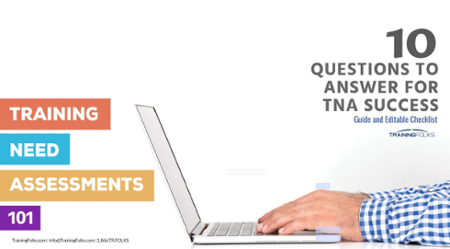What to Look for When Hiring a Virtual Instructor
With the increased number of employees now working from home, many organizations have had to quickly adapt. Work doesn’t stop, and neither does the need for hiring and onboarding new employees, upgrading or implementing new technologies, or rolling out a new cultural change initiative.
To help meet these demands, there has been an increase in hiring contract Virtual Instructors. Here are some tips to help you determine what you should look for in a Virtual Instructor, what level of Instructor you should hire, and how to evaluate their performance.
Traits of a Good Virtual Instructor
Tech-Savvy
Conducting classroom sessions versus online sessions is a very different experience, so hiring someone with specific experience in conducting virtual training sessions is key. Instructors should have knowledge of different virtual platforms, such as Webex, Adobe Connect, and Zoom. If your instructor will also be moderating the session, features such as hand raising, chat boxes, meeting rooms and polling will be important to know.
Technologies such as these are an integral part of teaching virtual classes because they allow for collaboration between all parties. Being tech-savvy is critical when it comes to virtual learning because you want an instructor who knows the technology well enough to handle issues that may arise on their own computer or on their participants’.
It is also a good idea to have a virtual producer manage the virtual platform for the instructor. This will allow the instructor to focus on the students and will create a more engaging seamless experience for the class. Don’t have a producer on your team? Contract a virtual producer for your session(s).
A successful virtual instructor understands how their platform can maximize the instructional approach designed, also the virtual instructor is comfortable pairing with a virtual producer to deliver a quality learning experience.
Adaptable
Everyone is different when it comes to learning, so it is hard to say that every session you have will be the same. Learner styles, personalities and communication styles vary which is why you should look for an instructor who can still effectively deliver the same content and achieve results. What works for one company, group or individual may not work for another therefore understanding their needs and adapting accordingly is critical to success.
Time Management
Time management and balance are very important when it comes to delivering virtual sessions. Most virtual instructors are remote employees, allowing them to provide online instruction in the comfort of their own homes and giving them autonomy of their schedules. Because of this, instructors need to be able to manage their time wisely and need to be self-motivated. Instructors need to keep their learners’ attention, incorporate breaks and activities, all while helping their learners develop a deep understanding of content. Instructors also need to make sure that their sessions begin and end on time.
Now that you’re familiar with the traits that a great virtual instructor should possess, what level instructor should you hire?
Level 1 Instructor
A level 1 instructor is responsible for reviewing training content to ensure an effective delivery, they will prepare the training environment to ensure that all elements are working effectively and will provide feedback on the training session with suggested improvements such as context and flow to ensure a highly engaging training experience. A level 1 instructor will also be certified in virtual instruction and will have good knowledge of the subject matter. They will also have some experience in the subject matter industry or line of business.
Level 2 Instructor
When looking for a virtual instructor, a level 2 instructor is the most frequently hired. A level 2 instructor has previous experience working within the clients specific industry, or line of business, and have good knowledge of the subject matter. As such, they can provide more in-depth feedback and recommendations based on the training content. A level 2 instructor can also act as a self-moderator, to facilitate an interactive, hands on experience, they are proficient in using all components of the virtual training tool and will have an industry specific accreditation.
Regardless of the level, our experienced team of contract trainers enable change in any organizational context by thoroughly understanding the training content (requiring various levels of specialization) and by effectively presenting content to match the learning audience.
With a network of over 30,000 highly experienced learning consultants across the globe, we can provide you the best team of virtual instructors who have industry specific knowledge and can provide the flexibility to roll out your training when it is ready to go without disrupting your team.
Download our FREE ‘Training Needs Assessment 101’ checklist that outlines 10 key questions for you to consider when planning your next training initiative.


